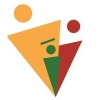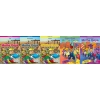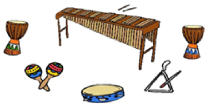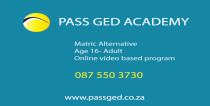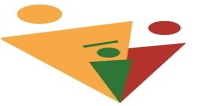NSC
The most common and well known academic matric in South Africa is the National Senior Certificate (NSC) or grade 12.
Obtaining the NSC
Many homeschooling families who choose the NSC matric option make use of a formal curriculum provider like Brainline, Impaq, Nucleus or others for grade 10, 11 and 12. To ensure that the child is ready for the curriculum providers' grade 10 work, some providers may expect the child to start following their home education programme from an earlier grade.
Most curriculum providers' material is CAPS compliant, thus the same content as used in public schools. For three years the student who uses a curriculum provider do 'school at home' with continuous assessments which includes tests, assignments, projects, orals and exams. This is the same as what any other student who attends school are doing.
The NSC route can be followed at home or through a learning centre. At home the child work through the study material on their own (or with the help of a parent or tutor) , complete assignment and write online tests. The exams are written at the curriculum provider’s examination centre. Some homeschoolers choose to work through a learning centre where the child enrolls and attends classes. Usually these are small classes with tutors.
Examinations
Students can enroll for the NSC if they are registered with a home education curriculum provider who is registered at one of the examination boards. For example Brainline students write IEB (Independent Examination Board) exams and Impaq the SACAI (South African Comprehensive Assessment Institute) exams. Parents should take into account that learners enrolled with a curriculum provider registered with SACAI or IEB, can write exams at exam centres across the country. If however the curriculum provider is registered with a provincial examination board then the exams can only be taken in that province.
Students should comply with the passing requirement for grade 10 and grade 11 before they can write the final grade 12 exam. This can be done by enrolling at a curriculum provider from grade 10. Alternatively they may engage with the examination board and negotiate with them about what the exam board shall deem sufficient for a learner to pass the grade 10 and 11. If the parents can provide sufficient evidence the learner can be enrolled for the NSC.
Learners must register for the NSC before or on the 15th of March in the year they are planning to write the NSC exams.
Preparing for exams
Old exam papers are a great way to revise and prepare for upcoming NSC exams. This way the student can determine what they already know and don't know. It also helps them to manage their time and become familiar with the terminology and vocabulary used in the actual exams. These exam papers are available on the website of the Department of Basic Education , curriculum menu.
Compiling results
The way in which the final mark for the NSC is compiled, is as follows:
- The final mark for the NSC consists of two components. The first component counts 25% and is the final marks of the internal assessment for grade 12. The second component counts 75% and is the mark obtained in the NSC exam.
- The final mark for the Life Orientation learning area is based on the final marks of the internal assessment. This internal assessment must be moderated externally by the Department of Education, the examination board and Umalusi.
- In grade 12 all internal assessment must be moderated externally by the Department of Education, the examination board and Umalusi.
Costs
The approximate costs for obtaining a matric are as follows:
NSC : R50,000+ for Gr 10-12 (R20 000 for Gr. 10 and Gr. 11 and R30000 for Gr. 12; excluding extra support). Providers prices vary.
Advantages of NSC
- Your child will do the "normal matric" and follow the mainstream way of doing matric . This will ease some of the criticism against your homeschooling, especially from family.
- Universities and industry are familiar with the NSC. It will be easier when it comes to job (especially government positions) and university applications as your child’s qualification will be seen as just another application, and not an exception.
- It is a structured and easy to follow approach as everything is already worked out and prescribed in the teacher and student manual. It relieves the parent from some responsibility on choices of content and study material. The child can also work through the programme mostly on their own.
- Can be completed in Afrikaans for students whose home language is Afrikaans.
Disadvantages of NSC
- As far as content goes, your children will be following the same CAPS curriculum as children at schools.
- It can be expensive and compares with some private school fees, especially as it takes at least three years to complete.
- Loss of freedom to be in control of your own learning as you are subjected to the providers schedules and deadlines. Lots of assignments and paperwork for students who were use to informal learning.
Events
Has no connect to show!
Legal & Research
Homeschooling and the law
Home schooling was recognized in 1996 in Section 51 of the SA Schools
+ ViewCentres
Homeschool ABC
Support
Curriculums
Teneo Online School
Online High School, Primary School and Pre-Primary School offering ...
Cambridge & International ...
As of 1 January 2025, Macmillan Education is the sole agent ...
Frequently Asked Questions
-
Do homeschoolers take holidays?
Yes, they take breaks. Some homeschool families follow the public school year calendar especially if they are involved in sport and music...
-
Do home learners sometimes wish they were in school and were normal?
They generally like being homeschooled. Some homelearners go to school for the experience but many return to homeschooling as within the homeschool...
-
How does homeschooling work?
Homeschooling is different for every family as it depend on the parents educational goals for their children Education is the development of the...
-
Is homeschooling legal in South Africa?
Yes. Since 1994, the right for parents to home educate their children was legalised in South Africa through the adoption of the new constitution. In...
Has no content to show!






